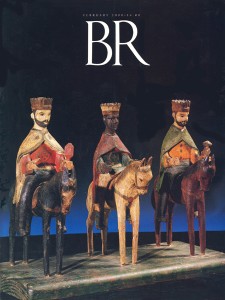We invited Professor Mason to respond to Professor Murphy-O’Connor’s comments in Bethlehem…Of Course, and he agreed. We then asked Professor Murphy-O’Connor to respond to Professor Mason. He too agreed. Their statements appear below:
Steve Mason’s response:
Polemicists and apologists attach themselves to conclusions; they either attack them or defend them. Historians, on the other hand, pose open-ended questions, asking When? Where? and especially, Why?
Although I did my best to cast my essay on where Jesus was born in the historical mode, much of Professor Murphy-O’Connor’s critique suggests that he imagined it as polemical. Clarification may be in order.
Despite appearances, what Murphy-O’Connor and I agree on is much more extensive—and important—than what we disagree on. In particular, we concur that the early Christians were quite creative with historical details of Jesus’ life. He notes that the census mentioned in Luke 2:1 cannot have been the occasion for Jesus’ birth in Bethlehem, and he acknowledges that Matthew created historical details (the Magi, the massacre of the innocents) to suit his Gospel’s agenda. Like the other writers, Luke felt quite free to change times and events, placing, for example, the census of 6 A.D. during the reign of Herod (37–4 B.C.).
Second, Murphy-O’Connor and I agree that the earliest surviving evidence for Jesus’ birth is relatively late, as much as 100 years after the event. We apparently disagree as to how far back one can trace, by inference, the roots of this evidence. These two points of agreement (the historical inaccuracies and the late date of our earliest witnesses) are the basis of my argument.
Already a library member? Log in here.
Institution user? Log in with your IP address.

